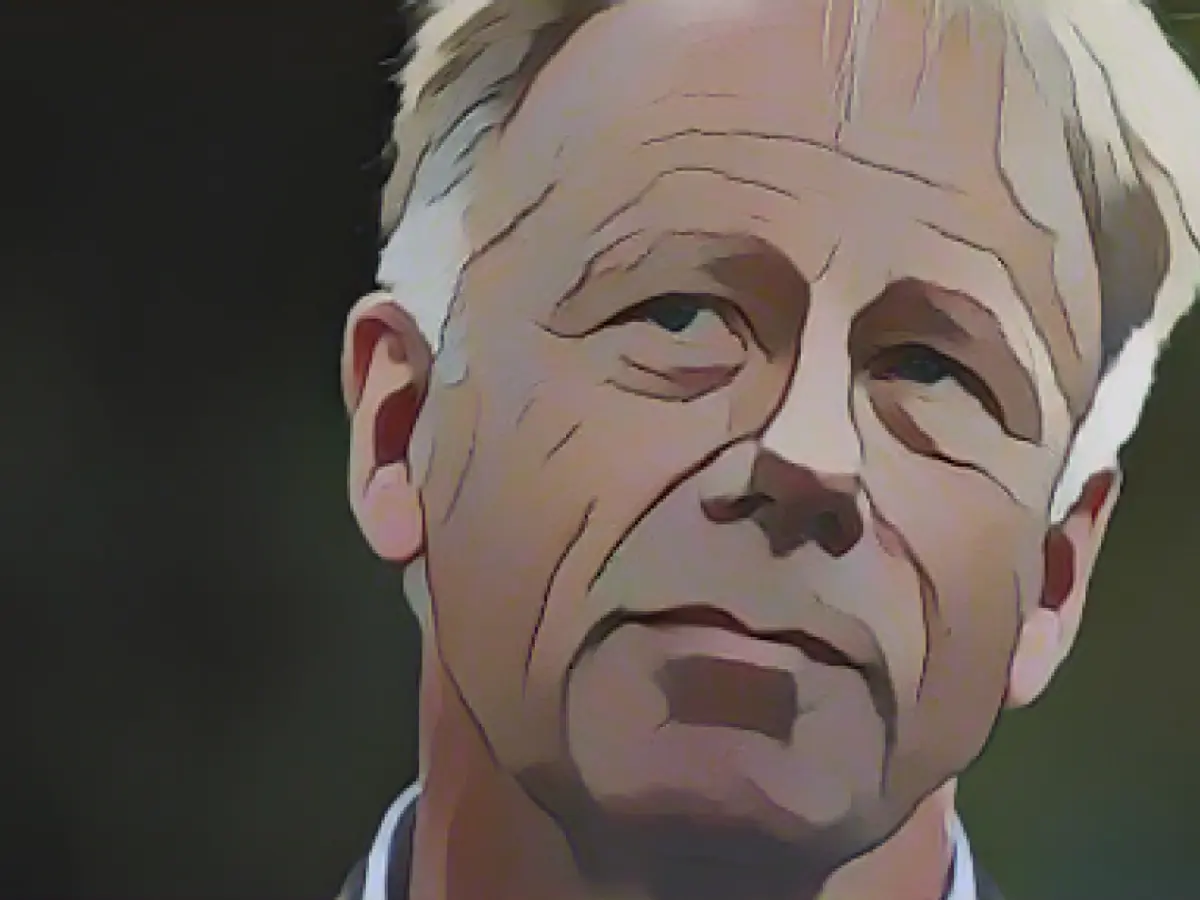25 years in the Bundestag - The "Can Man" and the Eco-Politician - A Farewell to Jürgen Trittin
Thorny, contentious, and divisive: as Jürgen Trittin takes his leave from the political sphere, the German Green Party waves goodbye to one of its most vocal advocates for environmental and climate protection, human rights, disarmament, and anti-nuclear energy policies. He was widely criticized, never shied away from conflict - yet, he was also celebrated as a success.
Jürgen Trittin: The One-Way Can Crusader
"Trittin's a tough cookie," was the response from the corporate world, often at odds with the Green Party leader. Particularly in the dispute over the can deposit, the former Federal Environment Minister put his opponents through their paces with his unyielding determination. Trittin's push for a mandatory single-use deposit introduced at the beginning of 2003 is likely to be forever associated with his name.
Born in Bremen in 1954, Trittin studied social sciences in Göttingen. His bond with the city in southern Lower Saxony remains strong, having represented the Göttingen constituency in the Bundestag since 1998. A member of the Green Party since 1980, he joined the Lower Saxony state parliament five years later, serving as the group leader for a time.
Trittin's first taste of government experience came between 1990 and 1994, when he served as Lower Saxony's Minister for Federal and European Affairs under the SPD's Minister President Gerhard Schröder.
Not Afraid to Clash
Schröder's SPD went on to win the 1998 Bundestag elections. Prominent Green Party member Trittin was the first choice for Federal Minister of the Environment, Nature Conservation, and Nuclear Safety. He held this post until the early federal elections in 2005, which marked the end of the Red-Green coalition. Although a Red-Green stalwart, Trittin frequently sparked controversy within his coalition. Controversial issues included the mandatory deposit, renewable energy (a divisive topic even more so in 2000 than it is today), nuclear phase-out, the eco-tax, and emissions trading.
Amicable Relations Turn Sour
Trittin and the then Minister of Economic Affairs Werner Müller (SPD) shared a cordial personal relationship during his initial tenure until 2002. However, thisamicability dissolved when Müller's successor, Wolfgang Clement (SPD), took the reins.
From Idealist to Pragmatist
His controversial statements included describing the CDU's General Secretary, Laurenz Meyer, as having "the mentality of a skinhead," during spring 2001. Three years later, the CSU's state group leader Michel Glos hit back by branding Trittin an "eco-Stalinist." The comment reflected Trittin's move from the radical wing of the Greens to the more pragmatic, realpolitik camp.
Head of Green Parliamentary Group
From 2009 to 2013, Trittin led the Green Parliamentary Group in the Bundestag. Subsequently, he shifted his focus from environmental policy to foreign affairs, joining the Foreign Affairs Committee from 2017 to 2021 and, most recently, serving as the foreign policy spokesperson for his party group. During the conflict in Ukraine, he supported earlier tank deliveries to the country invaded by Russia than others in his party.
Trittin votes against nuclear power plant extension
The 69-year-old found himself uncomfortable in the traffic light coalition of SPD, Greens, and FDP. Last year, when the lifetimes of the last remaining German nuclear power plants were extended due to uncertain energy supply, Trittin voted against this in the Bundestag. He criticized plans by his party colleague Robert Habeck for an industrial electricity price as "nonsense."
Further Reading
- Jürgen Trittin, a prominent figure in the Green Party and former Environment Minister in Germany, has represented the Göttingen constituency in the Bundestag since 1998.
- Born in Bremen, Trittin pursued social sciences at Göttingen University and remains connected with the city in southern Lower Saxony.
- Trittin gained political experience as Lower Saxony's Minister for Federal and European Affairs from 1990 to 1994 under SPD leader Gerhard Schröder.
- Following Schröder's win in the 1998 Bundestag elections, Trittin became the first choice as Federal Minister for the Environment, Nature Conservation, and Nuclear Safety.
- With his steadfast principles on environmental protection, disarmament, and human rights, Trittin often faced opposition, including in the controversial implementation of the one-way deposit in 2003.
- In later years, Trittin shifted his focus from environmental policy to foreign affairs, leading the Green Parliamentary Group and serving as spokesperson for his party group before retirement.
Source:
Additional Insights
Throughout his political career, Jürgen Trittin had a significant impact on German environmental policy. Some of his highlights include:
- Nuclear Power Phase-Out: During his tenure as Environment Minister, Trittin played a key role in phasing out nuclear power in Germany. The country's civil nuclear power usage was ceased by 2020 through the Nuclear Exit Law.
- Social and Environmental Justice: Trittin was also known for his commitment to social and environmental justice, promoting policies that prioritize sustainability and protecting workers' rights.
- Climate Change and Mitigation: Trittin was a vocal advocate for addressing climate change and mitigating its effects through policy measures.
Sources: [1] [2] [3]








